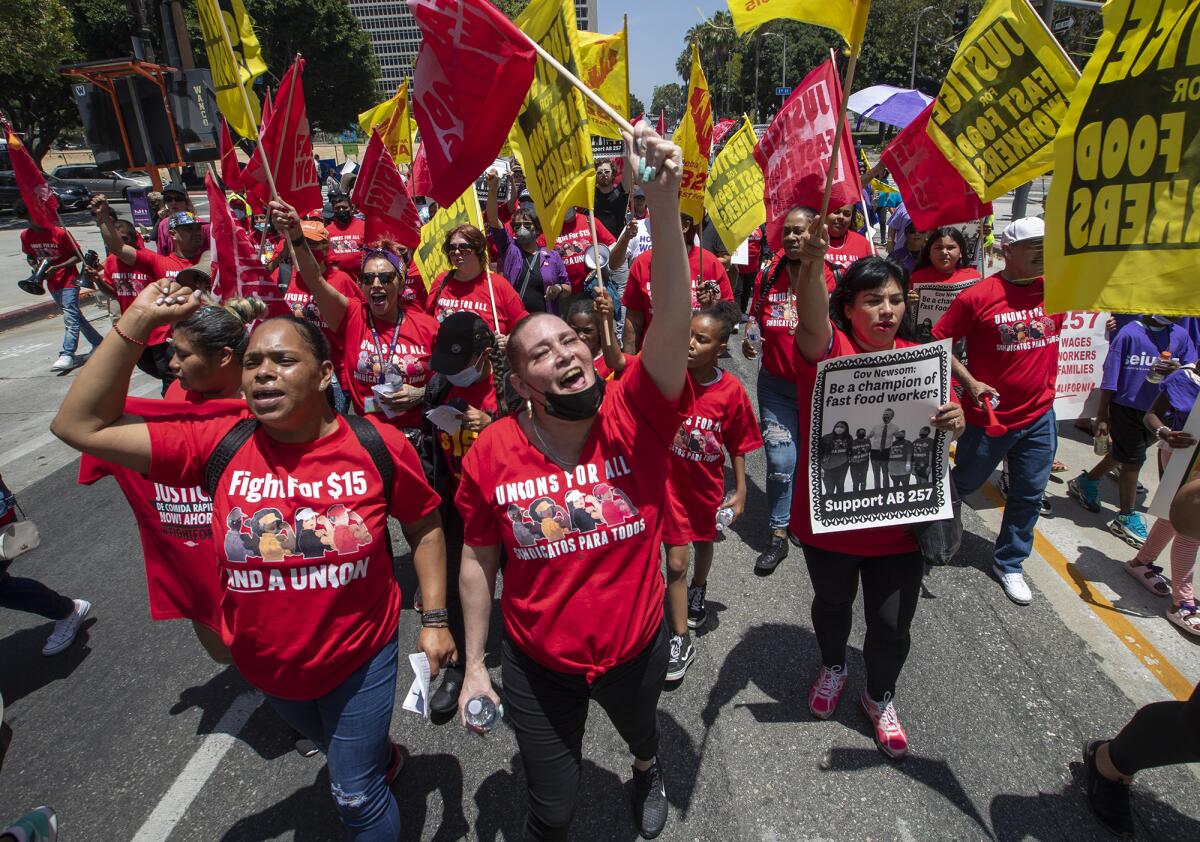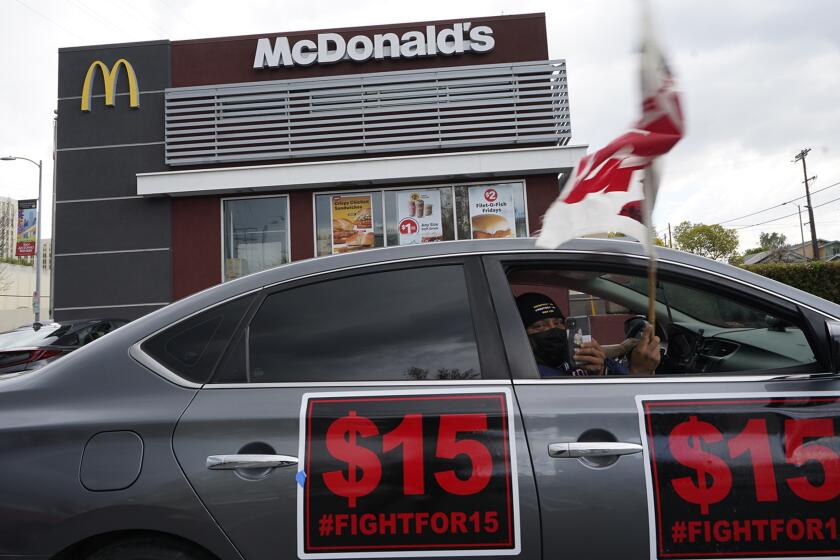Fast-food workers plan to strike across California today for better working conditions

- Share via
Fast-food workers across California are on strike Thursday in an effort to pressure state lawmakers to pass a landmark bill to improve and standardize working conditions.
Hundreds planned to gather at noon in front of Los Angeles City Hall to demand the passage of Assembly Bill 257, dubbed the Fast Food Recovery act, which would create a state Fast Food Sector Council to establish higher minimum standards for wages, working hours and conditions.
Workers at more than 300 restaurants throughout the state were expected to join the walkouts Thursday.
There are more than 700,000 fast-food workers in California, according a report by the International Franchise Assn.
The “Fight for $15” movement, organized by the Service Employees International Union, said it is advocating for those at the bottom of the barrel, a majority of whom it says are people of color.
“If signed into law, California could lead the nation in the fight for systemic change within the fast-food sector,” Assemblyman Chris Holden (D-Pasadena), one of the co-authors of the bill, said in a release in January.
California’s more than half a million fast-food workers would get increased power and protections under a first-in-the-nation measure approved by the state Assembly
The Assembly approved the bill in January and the Senate Labor, Public Employment and Retirement Committee is slated to hold a hearing on it Monday.
Organized walkouts by fast-food workers began last fall when frustration erupted over decades of stagnating or declining wages.
According to a survey released by the SEIU last month, 85% of fast-food workers experienced wage theft.
A study by the National Bureau of Economic Research shows that the franchise business model can impede workers’ ability to engage in collective bargaining, which AB 257 seeks to resolve.
If passed, the bill would require the new council to recommend and set industrywide minimum standards for more than half a million fast-food workers, while legally binding franchisers to franchisee compliance with those standards.
More to Read
Sign up for Essential California
The most important California stories and recommendations in your inbox every morning.
You may occasionally receive promotional content from the Los Angeles Times.












